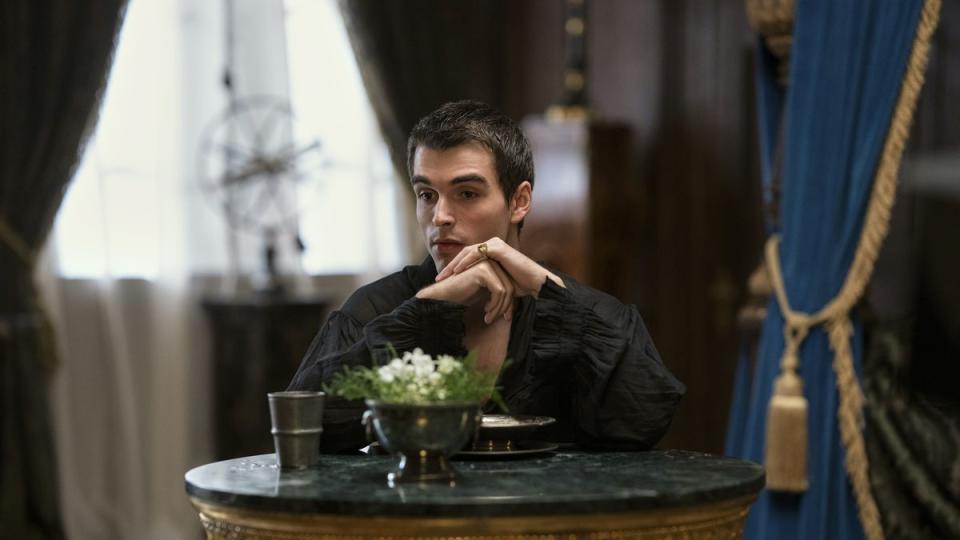The True Story Behind King George's Illness in 'Queen Charlotte'

- Oops!Something went wrong.Please try again later.
- Oops!Something went wrong.Please try again later.
Netflix's new Regency romance spin-off series Queen Charlotte: A Bridgerton Story takes a step away from the love lives of the Bridgerton family and focuses instead on the backstory of one of Bridgerton's most interesting side characters, the Queen herself, chronicling her and King George's courtship and their ascent to the throne.
Played by Corey Mylchreest, the George of Queen Charlotte is young and handsome, but also troubled by "madness," a rather insensitive term for what would, in modern parlance, be recognized as a mental health issue. As one servant in the show comments: "His Majesty has good days and down days."
This, too, is inspired by real royal history: George III's struggles with mental illness and their impact on the political landscape of the time are well-documented, and have been previously been explored in Alan Bennett's play The Madness of George III.
What exactly was George's illness?
An exact diagnosis of George III has never been determined, although there has been plenty of speculation over the years as to the cause of his erratic behavior, which was characterized by episodes of agitation, rambling, and hypersexuality.

One popular theory pointed to acute porphyria, a hereditary liver disorder which can affect the nervous system, and the film adaptation of Bennett's play, The Madness of King George, took this theory and ran with it, even going so far as depicting the King's urine turning purple (a common symptom).
However, more recent scholarship on the subject has determined that porphyria is a misdiagnosis, and that George's behavior indicates he was almost certainly suffering with a psychiatric disorder, such as manic-depressive psychosis, or what would more commonly be described now as bipolar disorder.
Despite the Bridgerton franchise's penchant for anachronisms, Queen Charlotte shies away from the temptation to apply a specific diagnosis or modern reading to George's behavior. This means that the series includes some pretty horrific scenes of George's "treatment" at the hands of Dr. Monro (sessions which border on torture), and does not grant the King an ahistorical "cure": as we already know from the previous Bridgerton seasons, his condition only worsens over time. What remains consistent in both timelines, however, is Charlotte's dedication to her husband, even if she cannot fully understand what is happening to him.
You Might Also Like

